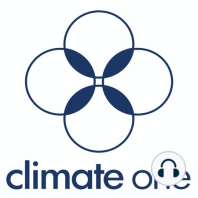71 min listen
Wild Weather (12/13/11)
FromClimate One
ratings:
Length:
66 minutes
Released:
Dec 16, 2011
Format:
Podcast episode
Description
2011 has been marked by extreme weather. In the U.S. alone, a record dozen disasters caused more than $1 billion in damage. This, and the release last month of a special UN report on extreme weather, was the backdrop for this Climate One panel featuring three leading climate scientists. Chris Field, Professor of Environmental Earth Sciences, Stanford University, is Co-Chair of the IPCC working group that produced the extreme weather report. He says the report reached three main conclusions: that extreme weather events are increasing; that losses are increasing; and that there’s a lot we can do about it: “smart things that don’t necessarily cost a lot that can be protective of assets and protective of lives.” What the extreme weather events tell us, says Michael Oppenheimer, Professor of Geosciences and International Affairs, Princeton University, is that “the climate is changing, and we have to learn how to deal with that. The good news, as Chris said, is that there are a lot of specific examples where we have been successful. We’re falling behind right now. But, at certain places, at certain times, people have done a very good job.” One area acutely threatened by climate change is food production, where decades of steady gains could be reversed. Chris Field notes that global food production has increased by a predictable 1% to 2% per year over the past 50 years. But, he warns, “I see food security at the heart of a perfect storm.” One proven hedge against this uncertainty is resiliency, says Karen O'Brien, Professor of Sociology and Human Geology, University of Oslo. “A lot of people think of resilience as going back to what it was before, but it’s also about being adaptive, being able to deal with these changes that are coming in a way that has a short- and long-term perspective.” The reality of extreme weather is forcing impacted individuals – whatever their personal beliefs about climate change – to acknowledge that something is amiss. “What we hear a lot from farmers, for example, is that they don’t really think about climate change by reading headlines about climate change forecasts,” says Dave Friedberg, Founder and CEO, The Climate Corporation. “They think about climate change when they’ve had a significant loss two, three years in a row. I think the psychology of risk and the psychology of loss is such that you don’t necessarily think about it unless it is something you can relate to, or there’s an experience you’ve had associated with it.” This program was recorded in front of a live audience at The Commonwealth Club in San Francisco on December 13, 2011
Learn more about your ad choices. Visit megaphone.fm/adchoices
Learn more about your ad choices. Visit megaphone.fm/adchoices
Released:
Dec 16, 2011
Format:
Podcast episode
Titles in the series (100)
Alan Weisman, Author of "The World Without Us": In this 2007 program author Alan Weisman talks about his book titled The World Without Us which looks at how the world would change without a human presence. by Climate One
